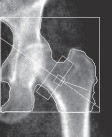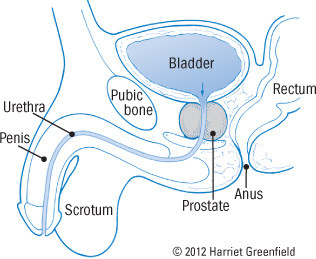Recent Blog Articles

Moving from couch to 5K

How — and why — to fit more fiber and fermented food into your meals

Tick season is expanding: Protect yourself against Lyme disease

What? Another medical form to fill out?

How do trees and green spaces enhance our health?

A muscle-building obsession in boys: What to know and do

Harvard Health Ad Watch: New drug, old song, clever tagline

Concussion in children: What to know and do

What color is your tongue? What's healthy, what's not?

Your amazing parathyroid glands
Screening Tests for Women Archive
Articles
Do you need mammograms?
Before you get your next mammogram, learn the pros and cons of this controversial screening test.
Once a year, we subject our breasts to the ritual ordeal of poking, prodding, and viselike squeezing known as a mammogram. We willingly endure this process because we know—or at least hope—that if we do get breast cancer, a mammogram will pick it up early enough to treat it and save our life.
Goodbye to yearly pap smears for some women over 65
If you're over 65, you may no longer need to see your clinician for a Pap smear every year, according to new cervical cancer screening recommendations from both the U.S. Preventive Services Task Force and American Cancer Society.
Bone mineral density testing: How often?
A study suggests that many older women don't need frequent testing.
Bone mineral density (BMD) testing assesses bone strength and is one of the most important factors considered in evaluating a woman's risk for an osteoporotic fracture. Current screening guidelines recommend BMD testing at the hip and spine with dual-energy x-ray absorptiometry (DXA) for all women ages 65 and over — and earlier in women whose 10-year risk of fracture is 9.3% or greater. (You can calculate your 10-year fracture risk with the Fracture Risk Assessment Tool, or FRAX, at www.shef.ac.uk/FRAX. FRAX takes into account several risk factors in addition to BMD.) But until recently, there's been little scientific evidence on how often a woman should be screened.
The PSA test: What's right for you?
The prostate-specific antigen (PSA) test is the most important issue in men's health. That's because prostate cancer is the most common internal malignancy in American men, and the great majority of the 240,000 new cases expected this year will be diagnosed because of the PSA test.
The PSA is also the most controversial issue in men's health. The debate began as soon as the test was used to screen for prostate cancer in the early 1990s. Advocates of testing pointed out that the test is the best available way to detect prostate cancer in its earliest, most curable form; that makes testing seem like a no-brainer. But critics pointed out that the test has many false-positive results, which raise the alarm about cancer when none is present, as well as many false-negative results, which provide misleading reassurance to men who actually have prostate cancer. In addition, since the test cannot distinguish between the large number of slow-growing prostate cancers that are harmless and the smaller number of aggressive, dangerous tumors, PSA screening may subject many men to difficult treatments that they do not need.
The new PSA report: Understand the controversy
The day before the findings were even released, The New York Times reported on the long-awaited United States Preventive Services Task Force (USPSTF) recommendation on prostate-specific antigen (PSA) testing. The headline announced "U.S. Panel Says No to Prostate Screening for Healthy Men." The public response was immediate, ranging from approval to confusion and even outrage; the CEO of a prominent prostate cancer advocacy group proclaimed that the USPSTF position "condemns tens of thousands of men to die this year and every year going forward."
Now that the report is available to all of us and we've had time to study it and reflect on its message, we should step back and evaluate PSA screening on its merits. It's a complex issue that requires careful consideration; at the end of the process, even men who disagree about the PSA are likely to agree that The New York Times's front page headline was an unfortunate oversimplification, and that we should all use precise, dispassionate language in discussing this contentious issue. Among other things, we'll see that the USPSTF position is evolutionary, not revolutionary, and that it is a recommendation, not an edict. The Task Force cannot take away a man's right to have a PSA test, nor would it want to. Still, the report is important, and it does point out that before a man decides whether or not to have a PSA test, he should fully understand that screening for early prostate cancer may do more harm than good.
Medical radiation: Too much of a good thing?
It all started in 1895, when Wilhelm Roentgen discovered x-rays. Six years later, he was honored with the first Nobel Prize in Physics; by then, doctors were already using primitive x-rays to diagnose illnesses. The collaboration between physicians and physicists has continued ever since, resulting in amazing advances far beyond Roentgen's wildest dreams.
Modern imaging techniques have saved countless lives. But like every medication and operation, these benefits come at a cost, both in dollars and sometimes in health. In the case of imaging, potential problems include both misdiagnosis and over-diagnosis, which often lead to excessive or unnecessary treatment. And additional side effects may result from the very radiation used to produce many types of diagnostic images.
Ask the doctor: Should I have my magnesium level checked?
Q. Should I have my magnesium level checked regularly to make sure I'm getting enough for my bones?
A. You need adequate magnesium, and not just for bone health. It's central to hundreds of biochemical reactions throughout the body and essential for proper nerve, muscle, heart rhythm, and immune function. It also helps regulate blood sugar levels and promotes healthy blood pressure. We get most of the magnesium we need in food (good sources are whole grains, legumes, and dark-green leafy vegetables). Most multivitamins also contain some magnesium.
Screening after age 75
Screening guidelines often change after age 75. If you're in that age group, how do you decide which tests you need?
If you're close to age 75, you may have followed the same schedule for mammograms, Pap smears, and other screening tests for decades. And if you're like many women, you may be surprised that your physician is suggesting fewer tests or longer intervals between them. The practice seems to fly in the face of conventional wisdom. After all, the risk for many degenerative diseases increases with age, so shouldn't older women be monitored even more closely? The answer is, "It depends on the woman."
The breast density-breast cancer connection
Women whose breasts appear dense on mammograms have a higher risk for some aggressive breast cancers.
One of the strongest known risk factors for breast cancer is high breast density — that is, relatively little fat in the breast and more connective and glandular tissue, as seen on a mammogram. Now, a study has found that higher breast density in postmenopausal women increases the risk of specific types of breast cancer, including some that have a relatively poorer prognosis.
Ask the doctor: Do I need a Pap test at age 75?
Q. I'm 75 years old and healthy. My doctor is still recommending annual Pap tests for me. I have no history of any problems in this area and have had normal Pap tests for years. Is this necessary at my age?
A. If you've had routine normal Pap tests up to now, you're unlikely to need further screening, as your risk for cervical cancer is very low. The three organizations that set guidelines for cervical cancer screening generally agree on this matter. The American Cancer Society recommends that Pap test screening be discontinued at age 70 in women who have had at least three normal Pap tests in the past 10 years and are not at increased risk for cervical cancer. The United States Preventive Services Task Force says that women at average risk for cervical cancer can stop Pap test screening at age 65. And according to the American College of Obstetrics and Gynecology, women at average risk can stop screening between the ages of 65 and 70.
Recent Blog Articles

Moving from couch to 5K

How — and why — to fit more fiber and fermented food into your meals

Tick season is expanding: Protect yourself against Lyme disease

What? Another medical form to fill out?

How do trees and green spaces enhance our health?

A muscle-building obsession in boys: What to know and do

Harvard Health Ad Watch: New drug, old song, clever tagline

Concussion in children: What to know and do

What color is your tongue? What's healthy, what's not?

Your amazing parathyroid glands
Free Healthbeat Signup
Get the latest in health news delivered to your inbox!
Sign Up







